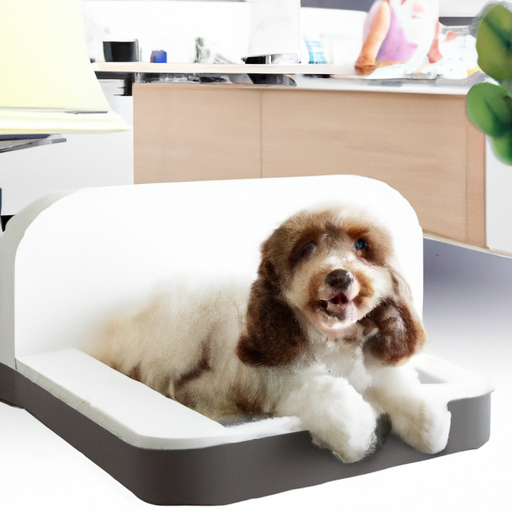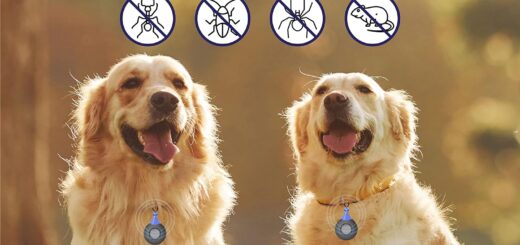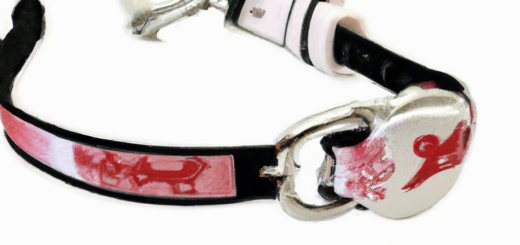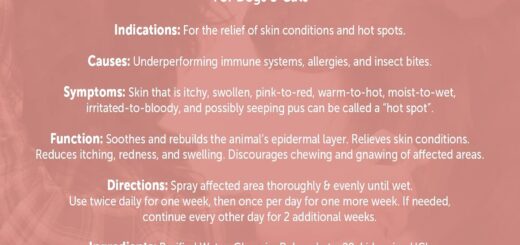Preventive Healthcare For Dogs: Vaccinations, Parasite Control, And Checkups
If you’re a loving dog owner, you know that keeping your furry friend healthy is a top priority. But did you know that preventive healthcare is key to ensuring your dog’s well-being? In this article, we’ll discuss the importance of vaccinations, parasite control, and regular checkups for your beloved pup. By understanding the significance of these preventive measures, you can help your canine companion live a long, happy, and healthy life. So let’s dive in and explore the world of preventive healthcare for dogs!

This image is property of images.pexels.com.
Vaccinations
Core Vaccines
Vaccinations play a crucial role in keeping your furry friend healthy and protected from various diseases. Core vaccines are those that every dog should receive to protect them against common and highly contagious diseases. These include vaccines for rabies, distemper, parvovirus, and adenovirus. Rabies is particularly important as it is not only a threat to your dog’s health but also to human safety. By keeping up with your dog’s core vaccinations, you can provide them with a strong immune system that can effectively fight off these potentially life-threatening diseases.
Non-Core Vaccines
In addition to core vaccines, there are also non-core vaccines that are recommended based on your dog’s individual needs and lifestyle. These vaccines target diseases that may be more prevalent in certain geographical areas or specific environments. Some examples of non-core vaccines include those for bordetella (kennel cough), leptospirosis, and canine influenza. Discuss with your veterinarian to determine if your dog requires any non-core vaccines based on their risk factors and exposure.
Vaccine Schedule
Proper timing and administration of vaccines are essential for their effectiveness. The vaccine schedule for dogs typically starts during puppyhood and continues throughout their adult life. Puppies usually receive a series of vaccinations to build up their immunity, starting as early as six to eight weeks of age. Booster shots are then given at regular intervals to maintain the dog’s protection. It’s important to follow your veterinarian’s recommended vaccine schedule to ensure your dog stays up to date and receives the necessary protection against diseases.
Parasite Control
Fleas and Ticks
Fleas and ticks are not only a nuisance but also major carriers of diseases that can adversely affect your dog’s health. Regular and effective parasite control is important to keep these pesky critters at bay. There are various preventive measures available, including topical treatments, oral medications, and collars that can effectively repel and kill fleas and ticks. Consult with your veterinarian to determine the best product for your dog’s specific needs and ensure that you follow the recommended dosage and application instructions.
Heartworms
Heartworm disease is a serious and potentially fatal condition caused by the transmission of heartworm larvae through mosquito bites. Prevention is key when it comes to heartworms, as treatment for the disease can be complex and costly. Your veterinarian can prescribe preventive medications, typically in the form of chewable tablets or monthly topical treatments, to protect your dog from heartworm infection. It’s important to administer these preventive medications regularly, especially during mosquito season, to ensure your dog remains heartworm-free.
Intestinal Parasites
Intestinal parasites such as roundworms, hookworms, and whipworms can cause a range of health issues for your dog, including vomiting, diarrhea, weight loss, and anemia. Regular deworming is crucial to prevent and control these parasites. Your veterinarian can recommend an appropriate deworming schedule based on your dog’s lifestyle and potential exposure to parasites. Additionally, practicing good hygiene, such as regularly cleaning up after your dog and disposing of feces properly, can help minimize the risk of intestinal parasite transmission.
External Parasite Prevention
Apart from fleas and ticks, dogs can also be susceptible to other external parasites such as mites and lice. These parasites can cause itching, skin irritation, and even secondary infections. Regular grooming and inspection of your dog’s coat can help detect any signs of infestation early on. Your veterinarian may recommend specific preventive measures, such as topical treatments or medicated shampoos, to keep these parasites at bay. By taking proactive steps to prevent external parasites, you can ensure your dog’s skin and coat remain healthy and free from discomfort.

This image is property of images.pexels.com.
Regular Checkups
Choosing a Veterinarian
Choosing a veterinarian for your furry companion is an important decision. Look for a veterinarian who is experienced, knowledgeable, and compassionate towards animals. It’s also beneficial to find a veterinary clinic that provides comprehensive services, including preventive care, diagnostics, and emergency services. Ask for recommendations from fellow pet owners and do some research to find a reputable veterinarian who will prioritize your dog’s health and well-being.
Frequency of Checkups
Regular checkups are essential to monitor your dog’s overall health and detect any potential issues early on. As a general guideline, adult dogs should visit the veterinarian at least once a year for a comprehensive examination. Puppies, senior dogs, or dogs with pre-existing conditions may require more frequent checkups. During these visits, your veterinarian will perform a thorough physical examination, discuss any concerns you may have, and update your dog’s vaccinations and preventive medications as necessary.
Physical Examinations
Physical examinations are an important component of regular checkups. During these examinations, your veterinarian will assess your dog’s overall body condition, check vital signs, and examine various body systems. This includes evaluating the heart and lungs, palpating the abdomen, examining the ears and mouth, and assessing the musculoskeletal system. These examinations help identify any potential health issues and allow for timely intervention and treatment.
Blood Tests
Blood tests can provide valuable insights into your dog’s overall health and help detect underlying conditions that may not be apparent during a physical examination. These tests can include a complete blood count (CBC) to assess red and white blood cell counts, blood chemistry panels to evaluate organ function, and heartworm tests to ensure your dog remains heartworm-free. Your veterinarian may recommend blood tests as part of your dog’s routine checkups or when investigating specific health concerns.
Dental Care
Don’t overlook the importance of dental care for your dog’s overall health. Dental disease is a common problem in dogs and can lead to pain, tooth loss, and even systemic infections if left untreated. Regular dental care includes brushing your dog’s teeth, providing dental treats or chews, and scheduling professional dental cleanings. Your veterinarian can assess the condition of your dog’s teeth and oral health during checkups and recommend appropriate dental care measures to keep your dog’s mouth clean and healthy.
Diet and Nutrition
Importance of a Balanced Diet
A balanced and nutritious diet is vital for your dog’s overall health and well-being. Providing a diet that is specifically formulated for their age, size, and breed can support proper growth, development, and immune function. High-quality commercial dog foods often provide the essential nutrients required for optimal health, but it’s important to read labels and choose a reputable brand. Consult with your veterinarian to determine the appropriate diet for your dog and ensure that it meets their nutritional needs.
Feeding Schedule
Establishing a regular feeding schedule is beneficial for both you and your dog. Feeding your dog at consistent times throughout the day helps regulate their digestion and can prevent overeating or obesity. Puppies may require more frequent meals, while adult dogs can generally be fed two meals a day. Consult with your veterinarian to determine the appropriate feeding schedule for your dog based on their age, activity level, and specific dietary requirements.
Special Dietary Needs
Some dogs may have special dietary needs due to allergies, food sensitivities, or medical conditions. If your dog has specific dietary requirements, consult with your veterinarian to determine the best course of action. They may recommend specialized diets that address your dog’s specific needs, such as hypoallergenic or grain-free options. It’s important to follow your veterinarian’s guidance to ensure your dog receives the necessary nutrients while avoiding any potential triggers that may adversely affect their health.

This image is property of images.pexels.com.
Exercise and Mental Stimulation
Physical Activity Requirements
Regular exercise is essential for maintaining your dog’s physical health and preventing weight gain. The amount and intensity of exercise your dog requires may vary depending on factors such as age, breed, and overall health. Most dogs benefit from daily walks, playtime, and interactive activities that encourage movement and exercise. Seek guidance from your veterinarian to determine the appropriate exercise routine for your dog, and remember to gradually increase intensity to avoid injuries.
Mental Stimulation
Mental stimulation is just as important as physical exercise for your dog’s overall well-being. Engaging your dog in mentally stimulating activities can help prevent boredom, reduce destructive behaviors, and promote a healthy mind. Interactive toys, puzzle games, and obedience training sessions are great ways to challenge your dog’s brain and provide mental enrichment. Regular brain exercises can also enhance your bond with your furry friend and promote their emotional and cognitive development.
Exercise-Related Health Concerns
While exercise is beneficial, it’s important to be mindful of certain health concerns that may arise from physical activity. Overexertion, especially in hot weather, can lead to heatstroke or dehydration. Certain breeds may be prone to joint or muscle conditions that can be aggravated by intense exercise. Remember to provide your dog with access to fresh water during exercise and adjust the intensity and duration of activities based on your dog’s individual needs and limitations. Regular checkups with your veterinarian can help assess your dog’s fitness level and identify any exercise-related health concerns.
Dental Care
Brushing Teeth
Brushing your dog’s teeth regularly helps maintain good oral hygiene and prevents dental disease. Use a soft-bristled toothbrush and pet-specific toothpaste to gently brush your dog’s teeth. Start by gradually introducing the toothbrush and toothpaste to your dog’s routine, allowing them to become comfortable with the process. Aim to brush your dog’s teeth at least two to three times a week, or as recommended by your veterinarian. Regular brushing can help remove plaque buildup, reduce the risk of dental disease, and keep your dog’s breath fresh.
Professional Dental Cleanings
While regular brushing is important, it may not always be sufficient to maintain optimal dental health. Professional dental cleanings performed by a veterinarian are necessary to remove tartar and plaque that cannot be eliminated through brushing alone. These cleanings are usually done under general anesthesia to ensure a thorough and safe procedure. Your veterinarian may recommend professional dental cleanings based on your dog’s dental health assessment during checkups. By prioritizing regular dental cleanings, you can help prevent dental issues and promote your dog’s overall well-being.
Dental Treats and Chews
Dental treats and chews can be effective additions to your dog’s dental care routine. These specially formulated treats and chews are designed to promote dental health by reducing plaque and tartar buildup. However, it’s important to choose high-quality products that are appropriate for your dog’s size and chewing habits. Consult with your veterinarian to determine the best dental treats and chews for your dog, and remember to provide them as recommended, taking into consideration your dog’s dietary needs and calorie intake.

Grooming
Bathing
Regular bathing is an essential part of your dog’s grooming routine. Bathing helps keep their coat clean, remove dirt, debris, and odor, and promotes a healthy skin and coat. The frequency of baths may vary depending on your dog’s breed, activity level, and lifestyle. Generally, dogs with short coats can be bathed every few months, while dogs with longer or thicker coats may require more frequent bathing. Use a mild, dog-specific shampoo and rinse thoroughly to avoid skin irritation or residue. It’s also an opportunity to check for any abnormalities or skin conditions that may require veterinary attention.
Brushing
Brushing your dog’s coat helps remove loose hair, prevent matting, and promote a healthy coat. The frequency of brushing will depend on your dog’s breed and coat type. Dogs with longer or thicker coats may require daily brushing to prevent tangles and matting, while shorter-haired breeds may only need brushing once a week. Choose a brush or comb suitable for your dog’s coat, and gently brush in the direction of hair growth. Regular brushing not only keeps your dog looking neat but also strengthens your bond with them through the act of grooming.
Trimming Nails
Regular nail trimming is important for your dog’s comfort and overall foot health. Overgrown nails can be painful and lead to gait abnormalities or even infections. The frequency of nail trims will depend on your dog’s activity level and lifestyle. Some dogs may require monthly trims, while others may need them more frequently. Use proper nail clippers or a nail grinder designed for dogs, and be cautious not to cut into the quick, which can cause bleeding and discomfort. If you’re unsure about nail trimming, consult with your veterinarian or a professional groomer for guidance.
Ear and Eye Cleaning
Cleaning your dog’s ears and eyes helps maintain good hygiene and prevent infections. Use a dog-specific ear cleaning solution and cotton balls to gently clean the outer ear. Avoid inserting anything into the ear canal, as this can cause injury. Regularly check your dog’s eyes for any discharge, redness, or irritation. Use a clean, damp cloth to carefully wipe around the eyes, avoiding direct contact with the eyeball. If you notice any concerning symptoms or your dog shows signs of discomfort during ear or eye cleaning, consult with your veterinarian for further evaluation.
Weight Management
Ideal Weight
Maintaining an ideal weight is crucial for your dog’s overall health and longevity. Obesity can lead to a variety of health issues, including joint problems, diabetes, and heart disease. Your veterinarian can help determine your dog’s ideal weight based on their breed, size, age, and body condition. Regular weigh-ins during checkups can help track your dog’s weight and ensure they are within the healthy range. If your dog is overweight, your veterinarian can guide you in developing a weight management plan that includes a balanced diet and appropriate exercise.
Obesity Risks
Obesity in dogs can have serious consequences on their health and well-being. Excess weight puts strain on your dog’s joints, leading to arthritis and decreased mobility. It also increases the risk of developing diabetes, heart disease, and respiratory problems. Obesity can shorten your dog’s lifespan and have a negative impact on their quality of life. By maintaining your dog at a healthy weight, you can minimize these risks and help them lead a happy, active, and disease-free life.
Healthy Weight Loss
If your dog is overweight, it’s important to approach weight loss in a healthy and gradual manner. Rapid weight loss can be detrimental to your dog’s health and may lead to other complications. Consult with your veterinarian to develop a weight loss plan that includes a balanced diet, portion control, and a safe exercise routine. Your veterinarian can monitor your dog’s progress as they shed those excess pounds and adjust the weight loss plan as necessary. Remember, slow and steady weight loss is the key to achieving and maintaining a healthy weight for your furry friend.

Behavior and Training
Proper Socialization
Proper socialization during puppyhood is crucial for your dog’s development and behavior. Socializing involves exposing your puppy to different experiences, people, animals, and environments in a positive and controlled manner. This helps them become well-adjusted, confident, and friendly adult dogs. Enroll your puppy in puppy socialization classes, introduce them to new environments, and facilitate positive interactions with other dogs and humans. Early socialization lays the foundation for good behavior and sets the stage for a happy and well-rounded dog.
Positive Reinforcement Training
Positive reinforcement training is an effective and humane approach to teaching your dog desired behaviors and commands. This training method rewards your dog for exhibiting the desired behavior, whether through treats, praise, or play. It encourages cooperation, reduces anxiety or fear, and strengthens the bond between you and your dog. Avoid using punishment or physical force during training, as this can lead to fear or aggression. Seek guidance from a professional dog trainer to learn effective positive reinforcement techniques tailored to your dog’s needs.
Addressing Behavior Issues
Addressing behavior issues promptly can prevent them from escalating into more severe problems. Common behavioral issues in dogs include excessive barking, separation anxiety, aggression, or destructive behaviors. It’s important to understand that these issues may stem from various factors, including fear, boredom, or lack of proper training. Consult with a professional dog trainer or a veterinary behaviorist to assess and address the root cause of the behavior issue. They can provide guidance on behavior modification techniques and develop a personalized plan to help your dog overcome their challenges.
Emergency Preparedness
First Aid Kit
Having a well-stocked first aid kit specifically for your dog can potentially save their life in emergency situations. Your dog’s first aid kit should include essentials such as bandages, antiseptic solution, sterile gauze pads, a rectal thermometer, tweezers, and any necessary medications prescribed by your veterinarian. Additionally, it’s important to familiarize yourself with basic first aid techniques for dogs, such as how to control bleeding, perform CPR if needed, and handle common emergencies. Keep your dog’s first aid kit easily accessible and make sure all family members know where it is located.
Emergency Contact Information
Keeping emergency contact information readily available is crucial in case of unexpected situations. Have your veterinarian’s contact details, as well as the contact information for the nearest 24-hour veterinary emergency center, saved in your phone and written down somewhere easily accessible. It’s also a good idea to have your dog’s medical records, including vaccination records and any relevant medical history, stored in a safe place or in electronic format for easy retrieval. Being prepared with the necessary information can help streamline emergency responses and ensure your dog receives prompt and appropriate care when needed.
Evacuation Plan
In the event of a natural disaster or emergency situation, having an evacuation plan in place is essential for the safety of both you and your dog. Identify pet-friendly evacuation shelters or hotels in your area and know the evacuation routes. Pack a disaster kit for your dog, including food, water, medication, and comfort items, and keep it easily accessible. Practice evacuation drills with your dog to ensure they are familiar with the process and reduce stress during real emergencies. By being prepared and having a plan in place, you can help protect your dog and provide a sense of security in challenging situations.
In conclusion, preventive healthcare for dogs encompasses various aspects such as vaccinations, parasite control, regular checkups, proper diet and nutrition, exercise and mental stimulation, dental care, grooming, weight management, behavior and training, and emergency preparedness. By prioritizing these preventive measures, you can promote your dog’s health, happiness, and overall well-being. Consult with your veterinarian for personalized recommendations and guidance to ensure your furry friend leads a long, healthy, and fulfilling life.









